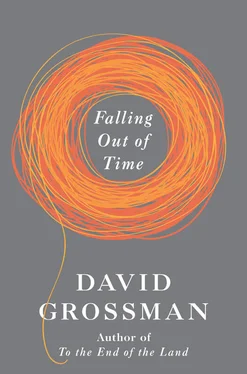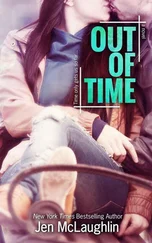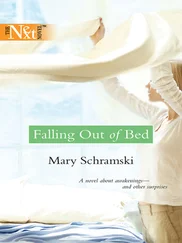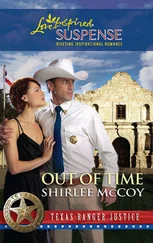and look
at whatever is there
at whatever we dare
to see
only when walking
in a dream
TOWN CHRONICLER: Sleeping … They’ve been sleeping almost constantly for days, sleeping their minds away. Sleeping and walking, speaking to one another in their dream, each head leaning on another walker’s shoulder. I do not know who carries whom and what force drives them to walk—
DUKE:
Sometimes, alone
in my private chamber,
I take off both shoes and look
at my feet and think
it is
him.
ELDERLY MATH TEACHER:
I hit him. He was
a stubborn boy, and impudent,
with strange opinions
even as a child, and I — spare
the rod, spoil the child — I had to
beat him.
When he raised his hands to protect
his face, I hit him
in the stomach.
WALKING MAN:
But where are you, what are you,
just tell me that, my son.
I ask simply:
Where are you?
Ayeka ?
Or like a pupil before his master
(for that is how I often see
you now),
please teach me — as I not long ago
taught you—
the world and all its secrets.
Forgive me if my question
sounds foolish and insipid, but
I must ask because
it has been eating
at my soul like a disease
these past five years:
What is death, my son?
What
is death?
MIDWIFE:
Great, definitive death,
my girl,
with b-b-boundless power. Eternal,
immortal d-d-death. And yours.
Your single, little death,
inside it.
COBBLER:
Actually, I wanted
to ask, What’s it like,
my girl, when you die?
And how are you there?
And who are you
there?
DUKE:
It is a perplexing thought, my son,
but perhaps you now know
far more than I do?
Perhaps a new and wondrous world
now carries you in flight,
and with a massive flap of wings
it spreads out
its infinity, just as
in our world here it long ago
lavished your soul with its abundance,
your pure, boyish soul. I feel
so young and ignorant before you.
TOWN CHRONICLER: Every so often a tremor passes through them, all of them, one after the other, as though an invisible hand had slid a caress down the spine of the small procession, lingering lightly over the head of each and every one. In their sleep, they straighten up toward it like blind chicks hearing their mother’s voice, and their eyes glow through their lids.
MIDWIFE:
I see her
jumping,
dancing in the kitchen,
before she fell ill,
when she still
had the strength. And her f-f-father,
my man, my love,
my cobbler, kneels before her
and places his hands: shoes for her feet.
COBBLER:
Am I dreaming?
I hear my wife.
I swear
her words are
hardly broken
anymore!
MIDWIFE:
… he walks her
through the house in his
hand-shoes, and laughs
until the roof almost flies off,
and she hugs his neck
and squeals, she has only just
learned how to talk,
you remember,
just beginning to say
her first words,
Dad-dy,
Mom-my,
Lil-li-li-li-Lilli.
COBBLER:
Lilli,
my
Lilli.
WALKERS:
We walk. Impossible
to stop. My body
won’t allow it. My feet
are weak. And me, my breath
is short, yet still our body
will not stand. It pushes from inside, onward ,
onward … It’s like
going to meet your sweetheart ,
isn’t it, Mrs. Chronicler? Yes ,
my lady of the nets, it’s like a lovers’ rendezvous .
WALKING MAN:
This void,
this absence,
death alone can render—
and it is not at all
a disappearance,
a cessation,
nothingness.
It has one final place,
a window opened
just a crack, where still
the absence breathes, still loosened,
palpitating, where one can still
touch the here ,
still almost feel
the warming hand that touches
there .
It is the threshold,
one last line shared both by here
and there, the line to which
— no farther—
the living may draw near,
and where, perhaps, they still can sense
the very tip,
just one more hint,
the fading embers, slowly dying,
of the dead.
ELDERLY MATH TEACHER:
You have become your death
so much that sometimes I must wonder
(Forgive me, have I crossed a line?
Best to be quiet? To ask? You know,
my son, I am a gentlemen, yet find myself unsure
how to address you … May I use the second person?),
but tell me, speak it clearly,
show no pity:
if they were to allow you— they ,
there —if you were given liberty
to choose—
would you come back?
Come back to this?
To me?
DUKE:
Or, as Rilke wrote of Eurydice,
are you, my child,
abundant with your own death,
which fills you
like a sweet and darkened fruit ?
While I,
a bothersome Orpheus,
try to pull you
over here
against your will?
ELDERLY MATH TEACHER:
Just one more, if I may?
(Whom else can I ask
but you, my teacher
in these mysteries?)
Tell me just what is the thing
in us, the living,
whereby we can become
completely dead
within an instant,
in the blink of our own death?
And give up everything,
be given up on,
as though a primal law
that always lurked inside us
suddenly appears and rises
like a shadow from the depths: around it
still the ruins mount,
and comfortably it settles in,
a haughty landlord long in charge,
its stony glare — which does not miss
a thing, yet sees nothing—
declares with just
a hint of triumph
in its smile—
“Death, my friends, is what is true!”
WALKERS:
When we meet … What will we tell them
when we meet? I, gentlemen ,
have already made up my mind:
I shall not tell him of his brother ,
born after his time. In her room
we changed all the pictures .
We couldn’t bear it any longer .
I ended up giving his dog
to a boy on the street .
(silence)
WALKING MAN:
And after some time,
whatever I do, you
fossilize.
Then I must
carve you,
time and again,
out of the layers of stone
in which you are
cast. I must try very hard
to want it—
must carve myself for it, too,
must fight—
while my whole being
shouts: Let go, it’s best
this way. Let human nature
do as it will, you must
accept his fate, respect
his border—
But then I soon suspect
myself: perhaps deep down
I long for you
to fossilize?
To bleed no more.
To not be
so awake, so sharp,
white-hot and
everdead.
But no less painful
are the times when I succeed,
when my imagination
cleaves the hunk of stone until
it cracks, then crumbles,
falls around you,
and then suddenly
you are there:
naked,
breathtaking,
glowing in the palm of rock,
or merely standing,
limp
and incidental,
you look this way
and that, embarrassed, without knowing
that I watch you: present,
so present,
neither promising nor
Читать дальше











